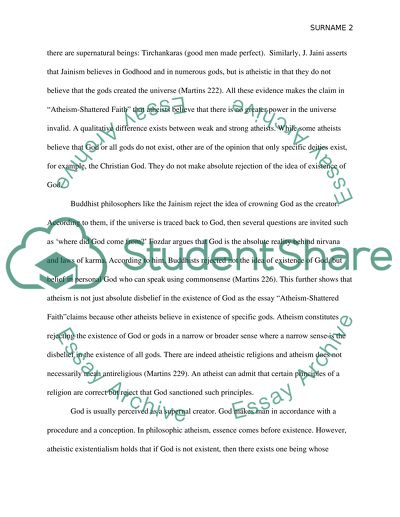Atheism Essay Example | Topics and Well Written Essays - 750 words. Retrieved from https://studentshare.org/religion-and-theology/1491323-atheism
Atheism Essay Example | Topics and Well Written Essays - 750 Words. https://studentshare.org/religion-and-theology/1491323-atheism.


